Poetry of Presence: An Anthology of Mindfulness Poems, eds. Phyllis Cole-Dai, Ruby R. Wilson, Grayson Books, West Hartford, CT, 2017, 250 pages, $21.95, paper, www.GraysonBooks.com.
I am hard at work (or joyfully at work) on my spring class with the Creative Retirement Institute (CRI), “Good Poetry 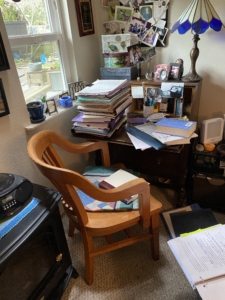 for Hard Times,” and I am also working on several reviews for Jacar Press. As a result, I’ve decided that one way to manage my time is to pull back a little from the blog reviews. A little!
for Hard Times,” and I am also working on several reviews for Jacar Press. As a result, I’ve decided that one way to manage my time is to pull back a little from the blog reviews. A little!
This morning I remembered this wonderful book, Poetry of Presence, gifted to me several years ago by my dear friend Holly J. Hughes. I pulled it down from the shelf and spent an hour browsing through its already well-thumbed pages.
So much to love! This is the dedication:
to the poets who help us be mindful in a world that has urgent need of presence
Out of the 153 poems, it’s difficult to choose just one to share. Poems by poets I know well: Hafiz, Barbara Crooker, William Stafford, Pablo Neruda, Wislawa Symborska, Laura Grace Weldon, Lucille Clifton, John O’Donohue. Perhaps you know this one:
Fluent
I would love to live
Like a river flows,
Carried by the surprise
Of its own unfolding.
—John O’Donohue (p. 82)
And poets new to me (so many!), including Rosemerry Wahtola Trommer, Ghalib, Stuart Kestenbaum, Penny Harter, Fady Joudah. This book truly is a gift. (I am assembling a reading packet of poems for my class, and wondering why the heck I didn’t simply assign this book.) This morning, this poem especially caught my attention. (The lines in parentheses should be indented 5 spaces, but in the preview I see that the formatting gets lost.)
Think of Others
As you prepare your breakfast, think of others
(do not forget the pigeon’s food).
As you conduct your wars, think of others
(do not forget those who seek peace).
As you pay your water bill, think of others
(those who are nursed by clouds).
As you return home, to your home, think of others
(do not forget the people of the camps).
As you sleep and count the stars, think of others
(those who have nowhere to sleep).
As you express yourself in metaphor, think of others
(those who have lost the right to speak).
As you think of others far away, think of yourself
(say: If only I were a candle in the dark).
—Mahmoud Darwish [trans. by Mohammed Shaheen] (p. 142)
After a brilliant weekend of spring weather (capris! sandals!), this morning rain is falling, but sunlight is breaking through to light up the cherry tree, its blooms wetly drifting down. My dog, Pabu, is asleep in front of my cabin door, his nose pointed toward the heater. And I am so happy to be able to recommend this book to you.
But! Before I let you go, forgive a little shameless hustling (again) for my CRI course:
As I mention above, it is titled “Good Poetry for Hard Times,” and begins on Friday, May 24, running through June 14. It is not a writing class, but will (one hopes) inspire much writing. It is inexpensive, and I’d love to have you join me. (You don’t have to be retired.) For more information, check my home page for events, or click on this link: Spring Quarter CRI.
I’ll leave you with these end-lines of one more poem from Poetry of Presence: “as if this quiet day / with its tentative light weren’t enough, / as if joy weren’t strewn all around” (Holly J. Hughes, “Mind Wanting More,” p. 89).
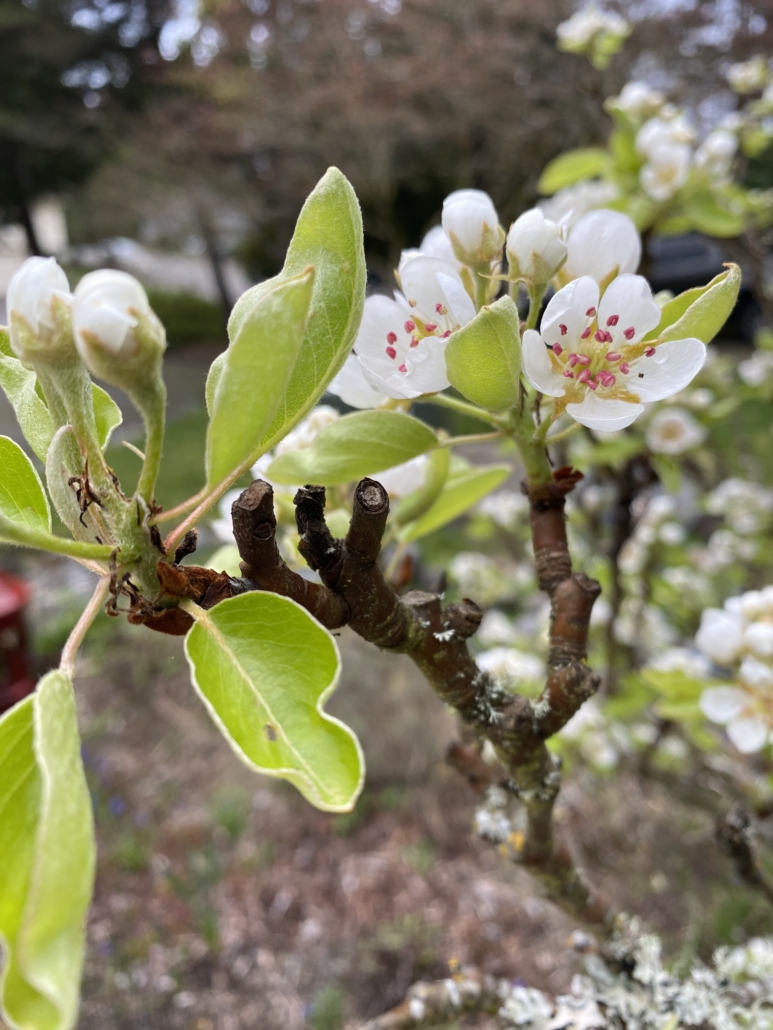
 $14.00 paper, www.jacarpress.com.
$14.00 paper, www.jacarpress.com.

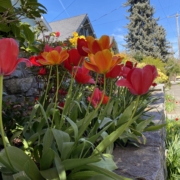
 for Hard Times,
for Hard Times,
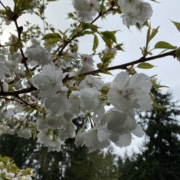
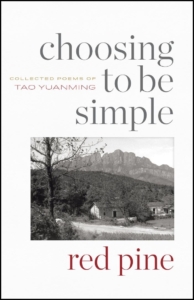 copying scraps into my morning journal, and trying to imagine what to say in a blogpost.
copying scraps into my morning journal, and trying to imagine what to say in a blogpost.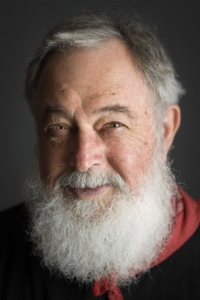 Red Pine spent many years in search of the poets he translates. You can find out more at the book page at
Red Pine spent many years in search of the poets he translates. You can find out more at the book page at 
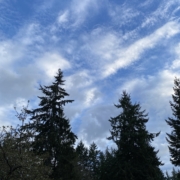
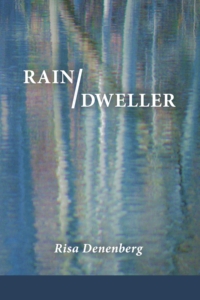 RAIN/DWELLER, Risa Denenberg. MoonPath Press, P.O. Box 445, Tillamook, OR 27142, 2013, 96 pages, $16.99, paper,
RAIN/DWELLER, Risa Denenberg. MoonPath Press, P.O. Box 445, Tillamook, OR 27142, 2013, 96 pages, $16.99, paper, 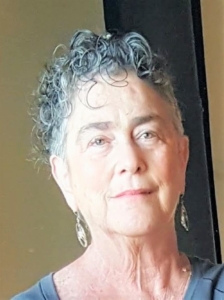 banyans and mangroves, the hued peeling bark of madronas— / in the same way I love my worn, battered boots. / I know my position. I’ve unwound my watch.”
banyans and mangroves, the hued peeling bark of madronas— / in the same way I love my worn, battered boots. / I know my position. I’ve unwound my watch.”